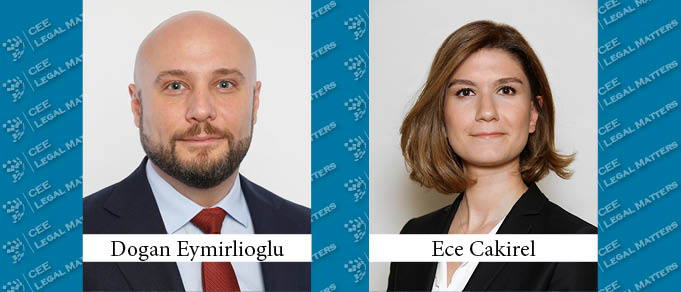As a result of standard monitoring of public procurement procedures contracts, in July 2021, the Bulgarian government announced that in the past two-and-a-half years, roughly BGN 8.6 billion (EUR 4.4 billion) were spent on in-house awards of public procurement contracts in Bulgaria.
Ukraine: The Prospects of Road PPP Projects
On February 15, 2022, the Ukrainian Parliament adopted draft Law No. 5090 on Amendments to the Budget Code of Ukraine on the Regulation of Budgetary Relations in the Implementation of Contracts Concluded within the Framework of Public-Private Partnerships, Including Concession Contracts (Law 5090). The law is vital for the functioning of public-private partnerships (PPP) in the road and highway reconstruction sector since it enables public partners to provide guarantees of fulfillment of their long-term obligations under relevant PPP projects.
Serbia: Current Overview of Public-Private Partnerships
The Law on Public-Private Partnership and Concessions of the Republic of Serbia (Law) defines public-private partnership as a dynamic and developmental process of financing infrastructure projects, which represents a form of cooperation between government bodies and the private sector, intending to modernize the infrastructure and improve the provision of public services.
North Macedonia: Legislative Updates on Infrastructure Projects
The development of road infrastructure is important for the Macedonian authorities. The Government of the Republic of North Macedonia (RoNM) analyzed and undertook different approaches for the realization of infrastructure projects in the past. During the last few years, the Assembly of the RoNM (Assembly) has adopted two laws that stipulated additional regimes for the realization of infrastructure projects.
Montenegro: The Use of PPPs in the Development of Infrastructure
Aware of the fact that an effective system of infrastructure creates the preconditions for the normal and undisturbed functioning of the wider social system, Montenegro has made significant efforts in recent years, both in terms of the normative definition of the sector and in finding optimal mechanisms for national infrastructure. In many European countries, a public-private partnership represents the optimal mechanism for national infrastructure, which has considerable advantages and is being ever more used.
Greece: PPP Projects Still on the Rise
The growth rate of public-private partnerships (PPPs) in Greece, which commenced almost four years ago and retained the same dynamics throughout the COVID-19 era despite the internationally unfavorable economic environment, remains undoubtedly impressive.
Austria: PPP & Infrastructure Projects Going Digital and Green
Public infrastructure projects in Austria and in particular PPPs are undergoing several changes. In the last few years, the focus of PPPs was on social infrastructure like schools, hospitals, and other clinics. Many of them have been structured as so-called Betreibermodelle, i.e., a form of build, finance, and operate models. However, the focus is clearly shifting towards infrastructure for digitalization and climate change.
Poland: General Trends in the PPP Market
While Polish public entities continue to express an ever-increasing interest in public-private partnerships (PPP) as a method of discharging public tasks, PPP activity has remained disappointingly slow in recent years. As can be seen from the 2009-2021 PPP Market Report by the Ministry of Regional Funds and Policies, just 24 procedures to select a private partner were launched in 2021, with PLN 627 million on the table, resulting in a paltry ten PPP contracts signed, worth PLN 172 million all told.
Infrastructure and PPP in Turkey – What’s Next?
For the past decade, to boost its long-term economic outlook and service the needs of the growing population, Turkey has used the public-private partnership model extensively in the infrastructure sector.
Slovenia: Working Hard to Avoid PPPs
In contrast to the previous financial crisis, when many construction companies in Slovenia declared bankruptcy, the current pandemic crisis has not affected the infrastructure sector to the same extent as other sectors. In fact, public infrastructure projects in Slovenia are currently on the rise. The focus of the current investment cycle is on the rail and road infrastructure for international and domestic use.
Renewed Efforts to Develop PPPs in Romania
Although Romania’s history with public-private partnerships (PPPs) spans over two decades, the legal framework in force until 2018 did not attract sufficient private partner interest for the development of such projects. As a result, to date, the number of successful PPPs remains rather low.
The Untapped Potential of the ESCO Financing Model
An Energy Service Company (ESCO) provides energy services and/or other energy efficiency improvement measures to consumers and, as a result of providing such services and/or measures, accepts a degree of financial risk. Payment for the services provided by an ESCO is based, in whole or in part, on the energy efficiency improvement and the fulfillment of other performance criteria agreed upon by the parties. As a rule, the ESCO is paid out of the cost reductions achieved following the energy upgrades and/or efficiency measures. Because payment is made from the energy savings, the costs of financing and implementing such an efficiency project may, based on the financing structure applied, be treated as an off-balance sheet asset.
New Age of FDI Screening – Stricter Rules for Non-EU Investors in Romania
Following the wave in Europe on the enforcement of foreign direct investment screening, Romania has just shifted to new rules for non-EU investors. The new regime entered into force on April 18, 2022, and is expected to be fully operational by June 18, 2022, when the new FDI Screening Commission is to be set up.
Progress (or Lack Thereof) in Romania’s Transposition of the EU Whistleblowing Directive
Although the first draft law transposing EU Directive 2019/1937 (Whistleblowing Directive) into national law has been launched in public debate by the Ministry of Justice in April 2021, the Whistleblowing Directive has not yet been implemented in Romania.
How Mobile Is the Mobility Package in the Transport Sector?
The new Mobility Package adopted at the European level represents a significant shift in the transport sector. Its effects have been long anticipated since the Commission’s proposal in 2017, as the new regulations intended to level the playing field for transport operators from different member states. Additionally, they aim to provide equal social protection to all drivers, reduce negative competition, and standardize different administrative procedures. Considering the new procedures, transport operators are faced with a multitude of challenges to adapt their business models to the current requirements.
For The Future – Romania’s New Cybersecurity Strategy (2022 – 2027)
The last few years have brought incredible leaps in technology, all fields seeing new and impressive heights that could only be imagined twenty years ago. But the rapid developments in technology came with greater risks in terms of cybersecurity. Romania plays an important role in terms of resources and capabilities in the cybersecurity field and makes ensuring a safe cyberspace a top priority for the country.
Challenging the Ascertaining Document – Recent Developments
A key institution enshrined by the Romanian legal provisions governing public procurement, the ascertaining document is issued by contracting authorities upon the finalization of a public contract and indicates whether contractors failed to fulfill their contractual obligations or have fulfilled them in a defective manner.
Romania: How to Create and Develop a Robust and Long-Lasting PPP Culture
In Romania, the first legal enactment specifically addressing PPP projects was adopted in early 2002. In the 20 years that followed, four primary pieces of legislation on this topic have been passed, with the declared objective to provide a sound legal basis for the implementation of PPP projects. Nevertheless, each of these successive enactments was adopted not to keep pace with the practical developments in PPP matters, but rather to respond to criticism of the absence of a proper legal basis to structure and implement PPP projects.










































